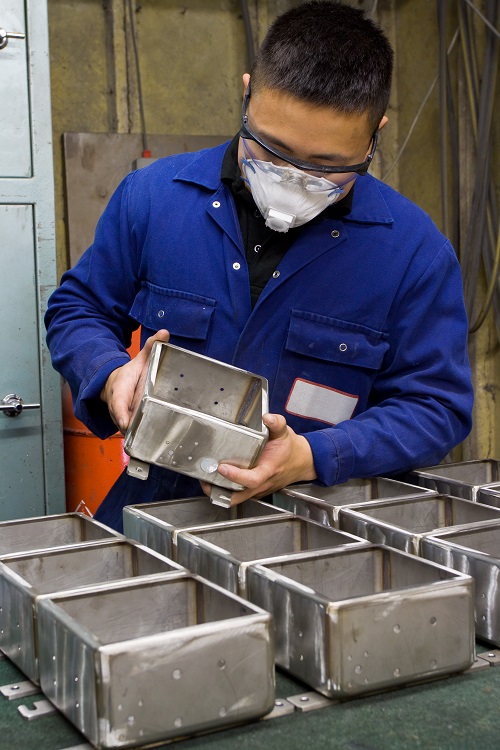What is Vapor Degreasing?
Vapor degreasing is a method of degreasing raw materials that have accumulated on any type of surface. In the manufacturing world vapor degreasing is critical for any surface finishing process. It involves the use of solvents in vapor form to clean and degrease parts, metals, components, and raw materials in preparation for future finishing operations. The actual process uses a vapor degreaser to cling onto the raw material. Once the vapor degreaser adheres to the raw material, it will work to dissolve the inhibiting particles and contaminants, which will eventually be removed simply by dripping off the raw material. A heating coil is usually used to bring the solvent to a boil, which creates the vapor. As the solvent evaporates, or vaporizes, it will rise (heat rises) into a chamber where the raw material(s) is / are being kept. The air within the chamber must have a lower density than the vaporized solvent, and the chamber itself must be completely closed off, so no air can travel in or out. The solvent will then condense on the cooler temperature raw material, and will then begin dissolving the inhibiting particles and contaminants. As the process continues, the impurities on the raw material will eventually become contained in the liquid beads of the vapor degreaser, which will eventually run, or drip off the raw material while still trapping the impurity. More recent vapor degreasing systems are now designed to capture and reclaim the solvent after dripping off the raw material, making the vapor degreasing process much more economical than other methods of parts cleaning.
Custom Vapor Degreasers
Because custom vapor degreasing now offers a way to essentially recycle and reuse the parts cleaning solvent for future and repeated cleaning processes, your industrial business can save money on degreasing solvents because you will use less. In addition, since your industrial business will need less of the cleaning agent used in the custom vapor degreasing process, this indirectly influences how much waste your business is producing. Obviously, your industrial organization will be producing much less waste, which also means you will be producing less toxins, carcinogens, and other environmental hazards that create a negative impact on both people and the environment. Clean up costs for produced waste that industrial businesses have to pony up can be quite expensive, so that is another reason why industries need to seriously evaluate the use of vapor degreasers. Finding ways to use less chemical cleaning solvents is always a helpful and positive methodology, one that produces positive influences for the environment. Custom vapor degreasers are one of the most eco friendly green alternative processes regarding the cleaning and degreasing of raw materials.
Ecolink can help you learn more about custom vapor degreasers that are available. Consult with Ecolink, and begin using custom degreasing solutions that allow your industrial business to save money.















